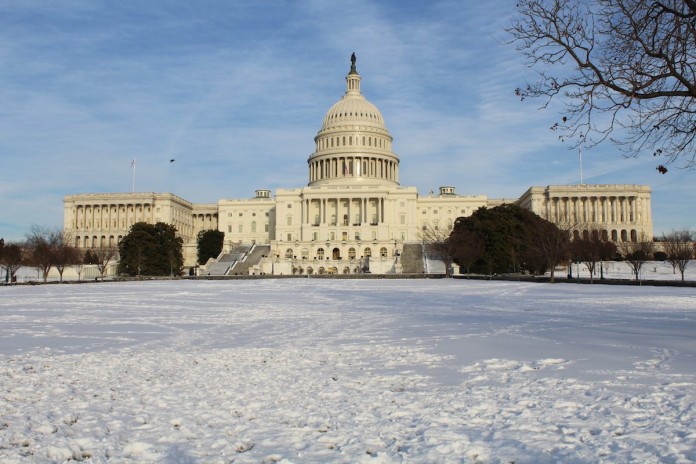The pain I felt late Jan. 7, was hard to pinpoint until I realized exactly when it struck — just moments after news of a tentative 2024 budget deal between Senate and House negotiators had been announced. As such, it soon became apparent the pain wasn’t physical; most likely it was emotional.
What, though? Anxiety? Bewilderment? Sorrow?
That was it, sorrow — for Kevin McCarthy, now in early retirement because the Jan. 7 deal was almost the same as the one he had struck with the White House last October. That deal inflamed enough House Republicans to make him a former Speaker and a former House member.
Poor old McCarthy, I thought, gone and forgotten because he woke up one day wanting to legislate, not bloviate. Silly pragmatist, said the House Knucklehead Caucus, and within hours McCarthy was tossed aside only to have his deal resurrected weeks later.
Alas, my McCarthy sorrow passed and by nightfall, my cranky old self had reemerged.
Congress, too, seems to have returned to its institutional senses — at least temporarily — to ensure it doesn’t allow the fringe elements of either party into a la la land abyss of foolish, even stupid, policies most of the nation abhors. Daringly, the first task its leaders took on was a budget deal.
That’s smart because as soon as the presidential primary season begins in Iowa, every House and Senate vote will be weighted even more with political implications for Nov. 5, the day of 2024’s local, state and federal elections.
And the U.S. isn’t the only country that will hold crucial elections this year. “Globally,” reported Time magazine on Dec. 28, “more voters than ever in history will head to the polls as at least 64 countries (plus the European Union) — representing a combined population of about 49% of the people in the world — are meant to hold national elections…”
Moreover, it added, just like in the U.S., the “results… for many, will prove consequential for years to come…”
Some of the most affected nations include the world’s most populous country, India, and its neighbors Bangladesh and Pakistan. Other countries holding national elections are the United Kingdom, Mexico, Iran, Cambodia, Jordan, and — incredibly — both Russia and its battlefield opponent, Ukraine.
All make 2024 “not just an election year” but “perhaps the election year,” Time adds.
This year could also be the Farm Bill writing year for at least two reasons — it’s a year late already and the Dems may be running out of time to influence any final bill.
The delay is typical of recent Farm Bills fights. Deep differences between the Republican-controlled House Ag Committee and the Dem-controlled Senate Ag Committee over food assistance have delayed past Farm Bills.
Stark differences remain for the now 2024 bill and no one in either party or chamber returned from the holiday break in a charitable, let’s-get-this-done mood. In fact, remarkably little news emerged from either camp in the last six weeks.
Looming over any bipartisan, bicameral compromise is the pending retirement of Michigan Sen. Debbie Stabenow, the Democratic leader of the upper chamber’s Ag Committee and the key figure in passing the year-delayed 2018 Farm Bill. Stabenow has vowed to fight proposed House GOP cuts to food assistance and to protect the Biden Administration’s long-term “green” ag spending.
Still, her planned November retirement hangs over any deal-making this year. Continued delays by House Ag Republicans — combined with the probable retaking of the Senate by the GOP in November — would be a blow to both Stabenow and any hope for a bipartisan Farm Bill.
First, however, Congress needs to pass the 2024 federal budget. Can this year’s renewed sense of institutional urgency move members to work through their personal and political differences to complete this straightforward responsibility?
Only time — and the Speaker-chucking Knucklehead Caucus — will tell.














